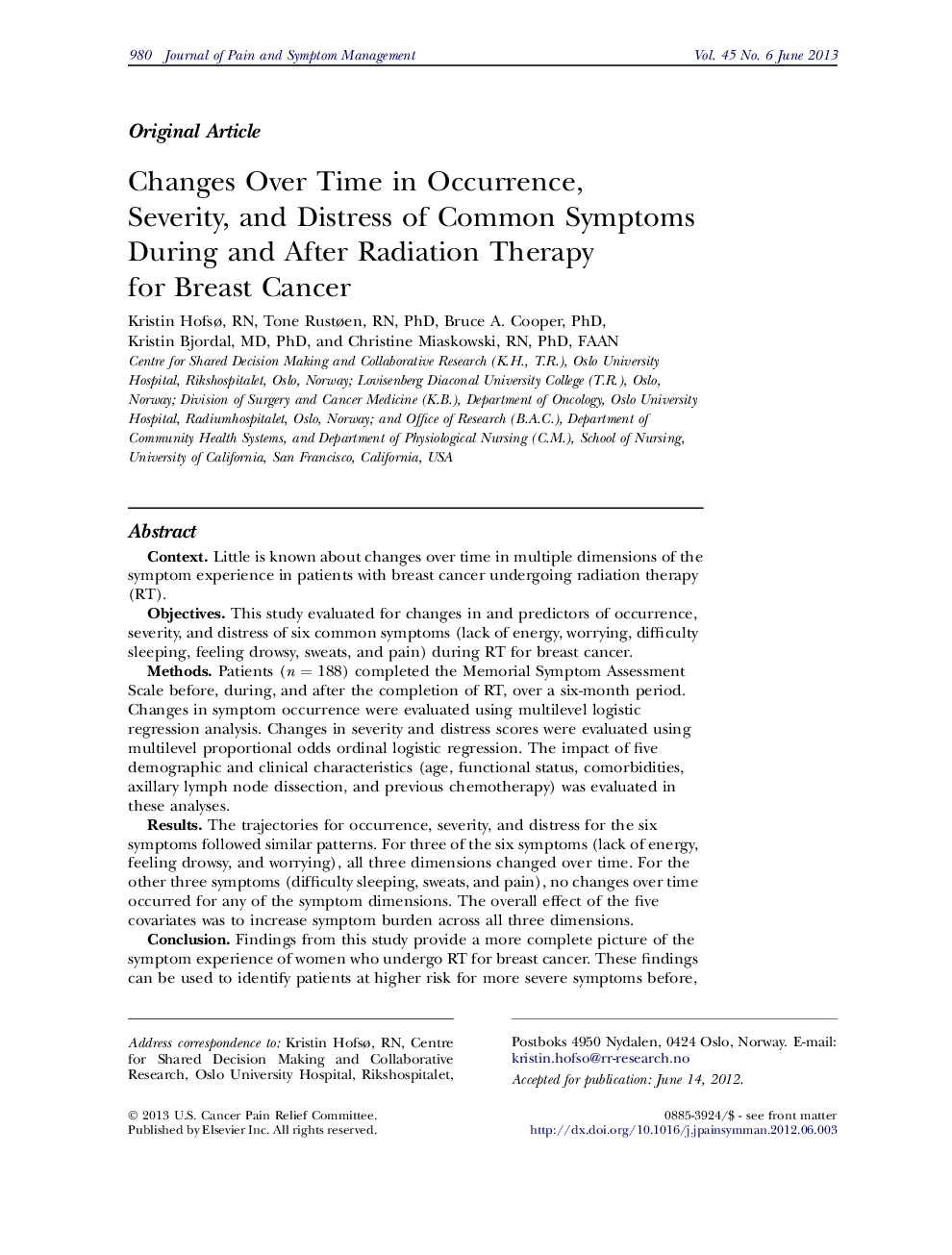| Article ID | Journal | Published Year | Pages | File Type |
|---|---|---|---|---|
| 2736017 | Journal of Pain and Symptom Management | 2013 | 27 Pages |
ContextLittle is known about changes over time in multiple dimensions of the symptom experience in patients with breast cancer undergoing radiation therapy (RT).ObjectivesThis study evaluated for changes in and predictors of occurrence, severity, and distress of six common symptoms (lack of energy, worrying, difficulty sleeping, feeling drowsy, sweats, and pain) during RT for breast cancer.MethodsPatients (n = 188) completed the Memorial Symptom Assessment Scale before, during, and after the completion of RT, over a six-month period. Changes in symptom occurrence were evaluated using multilevel logistic regression analysis. Changes in severity and distress scores were evaluated using multilevel proportional odds ordinal logistic regression. The impact of five demographic and clinical characteristics (age, functional status, comorbidities, axillary lymph node dissection, and previous chemotherapy) was evaluated in these analyses.ResultsThe trajectories for occurrence, severity, and distress for the six symptoms followed similar patterns. For three of the six symptoms (lack of energy, feeling drowsy, and worrying), all three dimensions changed over time. For the other three symptoms (difficulty sleeping, sweats, and pain), no changes over time occurred for any of the symptom dimensions. The overall effect of the five covariates was to increase symptom burden across all three dimensions.ConclusionFindings from this study provide a more complete picture of the symptom experience of women who undergo RT for breast cancer. These findings can be used to identify patients at higher risk for more severe symptoms before, during, and after RT.
